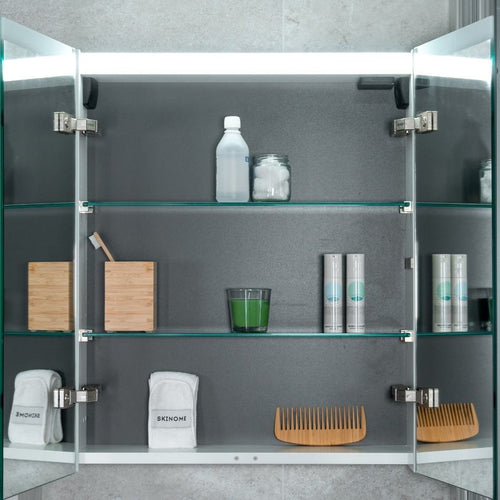4. "Eftersom män har en oljigare hud behöver de inte använda fuktkräm"
Förklaring: Detta påstående är en myt. Att använda fuktkräm rekommenderas för män även om de har oljigare hud. Enligt Skinomes hudexpert Ulf behöver män i allmänhet inte lika feta och ocklusiva krämer eftersom de vanligtvis har oljigare hud. Användning av en lättare fuktighetskräm rekommenderas dock eftersom det tillför fuktighetsbevarande ämnen och skyddande ingredienser som stödjer fuktbalansen och skyddar huden, särskilt efter rakning. Dessutom kan frekvent ansiktsrengöring eller användning av smink ytterligare stärka behovet av att använda en fuktkräm.
Ulf berättar att rakning alltid innebär en risk för att skada huden, vilket kräver att fuktkrämen innehåller lugnande ämnen som kan bidra till att huden inte blir röd och irriterad efteråt.
5. "Du behöver bara använda solkrämer när det är soligt ute"
Förklaring: Detta påstående är en myt. Under sommarsäsongen är det inte så stor skillnad vad gäller UV-intensitet när vädret är molnigt eller soligt. Till exempel, de varmaste sommardagarna når UV-index, som är ett mått på hur starkt solljuset är, ofta 7 i direkt solljus, medan det i molnigt väder är 6. Detta visar den lilla skillnaden mellan soligt och molnigt väder när det kommer till hur stark solen är.
Ulf rekommenderar att en generell tumregel är att en solskyddskräm ska appliceras från april till slutet av september samt när du åker skidor eller är utomhus under vintern när solen skiner och snön reflekterar UV-ljuset. I början av sommaren är vår hud mer sårbar och känslig för solen och därför behöver vi skydda den. Men i slutet av sommaren är solen fortfarande stark och därför måste solkräm även då appliceras för att förhindra eventuella skador på huden. Användning av solkräm är lika viktig när man utsätts för solens strålar genom fönstret, till exempel när man jobbar hemifrån bredvid fönstret eller när man åker på en road trip under sommarsäsongen. Även om glasfönstret skyddar mot UVB-strålar, skyddar det inte mot UVA-strålar. UVA-strålarna når djupare lager av huden och kan därför påverka fibroblaster och andra celler som har en avgörande roll i hudens fysiologi.



















